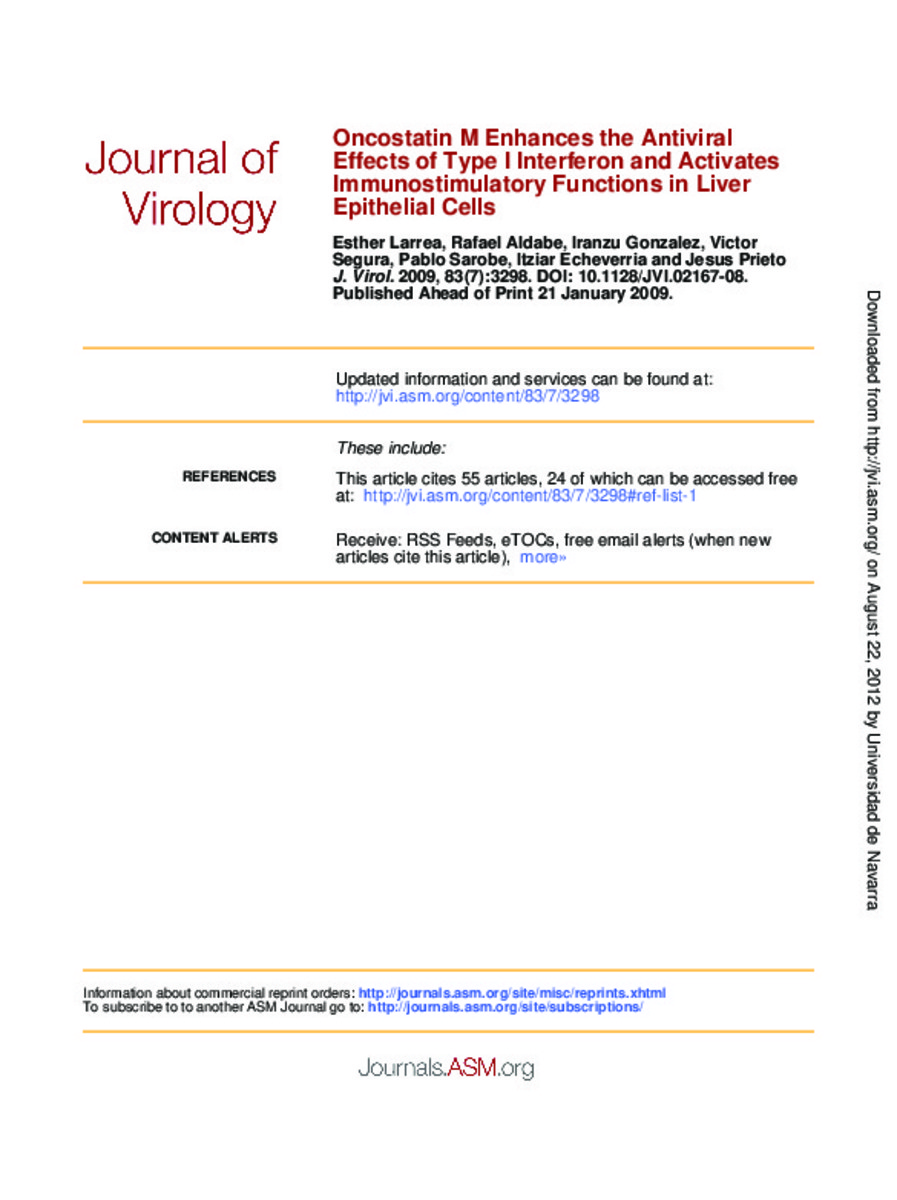Oncostatin M enhances the antiviral effects of type I interferon and activates immunostimulatory functions in liver epithelial cells
Palabras clave :
Epithelial Cells/immunology
Hepacivirus/immunology
Hepatitis A virus/immunology
Interferon Type I/immunology
Liver/immunology
Oncostatin M/immunology
Fecha de publicación :
2009
Editorial :
American Society for Microbiology
Cita:
Larrea E, Aldabe R, Gonzalez I, Segura V, Sarobe P, Echeverria I, et al. Oncostatin M enhances the antiviral effects of type I interferon and activates immunostimulatory functions in liver epithelial cells. J Virol 2009 Apr;83(7):3298-3311.
Aparece en las colecciones:
Estadísticas e impacto
0 citas en

0 citas en

Los ítems de Dadun están protegidos por copyright, con todos los derechos reservados, a menos que se indique lo contrario.








